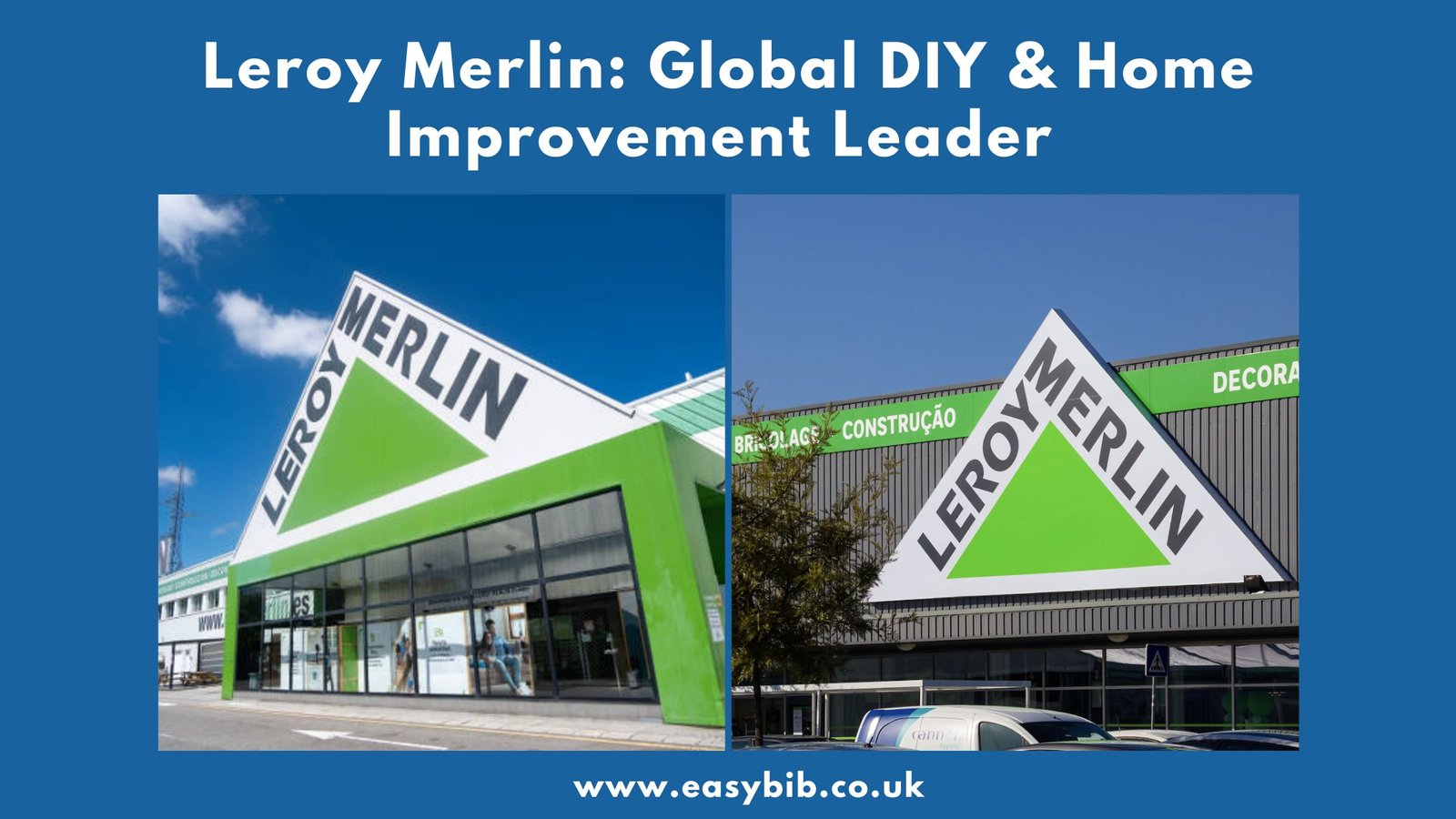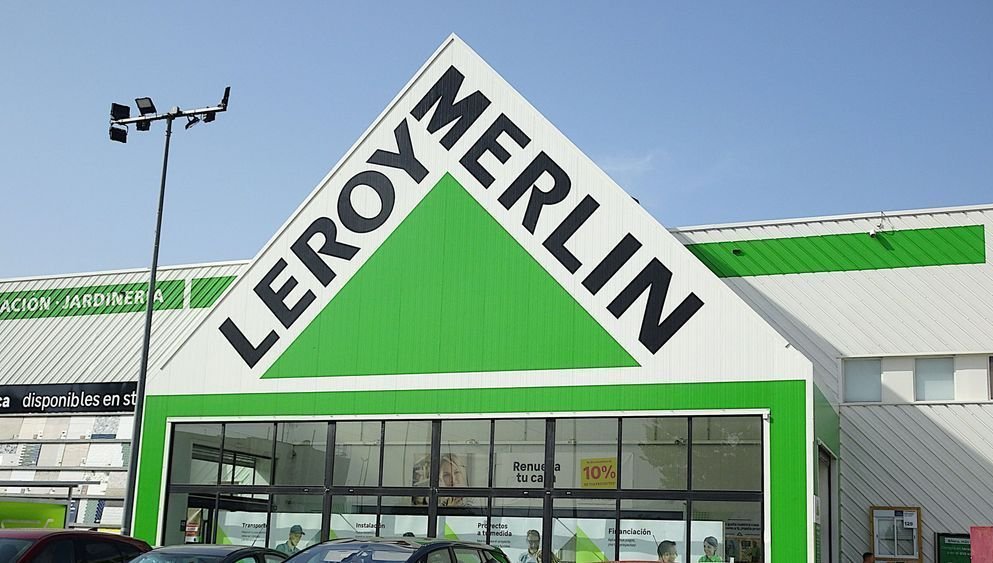Leroy Merlin: Global DIY & Home Improvement Leader

Leroy Merlin is a global retailer. It sells home improvement and gardening products. The company began in France in 1923. Today, it operates in more than 12 countries. These include France, Spain, Italy, Brazil, Poland, and South Africa. Leroy Merlin focuses on DIY solutions. It offers materials, tools, and services to individuals and professionals. The company has more than 100,000 employees. It serves millions of customers each year.
The brand is part of the Adeo Group. This group is also owned by the Mulliez family. They also own brands like Decathlon and Auchan. Leroy Merlin is one of the largest home improvement chains in Europe. Its success is built on affordable prices, wide product ranges, and strong customer service.
History of Leroy Merlin
The company started as a surplus stock store. It was first called “Au Stock Américain.” Founders Adolphe Leroy and Rose Merlin sold leftover U.S. military supplies. Over time, they expanded their business. In 1960, the company adopted the name Leroy Merlin. That marked the beginning of a modern retail approach.
Leroy Merlin focused on innovation. It was among the first to introduce self-service in home improvement stores. It allowed customers to browse and choose without staff assistance. The company also offered home delivery services early on. These ideas helped build trust and convenience for shoppers.
International Growth
The 1980s brought major changes. The Mulliez family bought Leroy Merlin. They restructured the business. New stores opened in France and later in other European countries. Spain, Italy, and Poland became major markets. By the 2000s, Leroy Merlin entered South America. Brazil became one of its biggest successes outside Europe.
The company focused on large-format stores. These offered everything under one roof. Paint, tools, garden equipment, furniture, and even smart home products. Each country had its own catalog. This helped serve local needs and preferences.
Products and Services
DIY and Home Improvement
Leroy Merlin sells a wide range of products. Customers can find construction items, insulation, lighting, plumbing, and electrical supplies. It also offers bathroom and kitchen fittings. Paints, tiles, wallpaper, and flooring are available in many designs.
DIY customers can find everything for small and large projects. Professionals can buy in bulk. Discounts are often provided to frequent buyers. The stores also include workshops. These offer guidance on tool use and project planning.
Gardening and Outdoor Living
Gardening is another major category. Leroy Merlin sells seeds, soil, pots, garden furniture, and outdoor décor. Customers can also buy lawnmowers, water pumps, and irrigation systems. In warmer months, these sections become very popular.
The brand also offers greenhouses, compost bins, and solar lights. These support eco-friendly living. Many stores have outdoor display areas. Shoppers can see and test items before buying.
Services for Customers
Apart from products, the company offers various services. This includes home delivery and installation. Customers can also request 3D design services. These help visualize kitchens, bathrooms, or full renovations.
Leroy Merlin also provides online ordering. Shoppers can choose in-store pickup or home delivery. There is also a loyalty program. Members get points, discounts, and early access to new products.
Digital Transformation
Leroy Merlin is expanding online. Its website features thousands of products. Customers can read reviews, compare items, and check store stock. The mobile app helps users find stores, scan items, and track purchases.
The company launched a digital marketplace. Third-party sellers can now list their products. This has expanded the range beyond physical store inventory. Online-only offers and exclusive deals also encourage digital sales.
The brand also focuses on logistics. Many warehouses support fast shipping. Some stores have pickup lockers. These help reduce wait times. Digital kiosks are also used in stores for extra convenience.
Commitment to Sustainability

Green Products and Materials
Leroy Merlin promotes responsible sourcing. It sells eco-labeled products. Many items are made from recycled materials. These include paints with low VOC, FSC-certified wood, and water-saving faucets.
The company works with local suppliers. This reduces transportation impact. It also supports sustainable forest management. Products are tested for durability and environmental safety.
In-Store and Supply Chain Efforts
Stores are reducing plastic use. Paper bags and reusable packaging are encouraged. Many locations also use solar panels. Energy-efficient lighting is now standard in newer stores.
The supply chain is monitored closely. Partners must follow ethical labor practices. Materials are sourced from certified vendors. Leroy Merlin also educates customers about sustainability. It offers guides and training for green home improvements.
Employment and Training
Leroy Merlin employs more than 100,000 people. Most employees work in sales, logistics, or management. The company offers training programs. These include technical skills and customer service.
There are also leadership development programs. Many store managers started in entry-level roles. Internal promotions are common. This supports employee growth.
The company values work-life balance. Some countries offer flexible shifts. In Spain, Leroy Merlin reduced Sunday hours. This followed employee feedback and union discussions.
Community Engagement
Leroy Merlin supports many local projects. It donates products to schools, hospitals, and NGOs. Volunteers help renovate public spaces. The brand believes in giving back.
Workshops are often held for children and adults. These promote creativity and DIY skills. In some areas, stores host events to support neighborhood improvement.
Emergency aid is also part of its program. Leroy Merlin has helped rebuild homes after floods, fires, and other disasters. Quick delivery of materials and volunteer support are key parts of this response.
Challenges Faced by Leroy Merlin
The brand has faced criticism. In 2022, it continued operations in Russia after the Ukraine invasion. This led to public backlash. In 2023, it handed over control to local managers. Still, many people viewed this as avoiding responsibility.
Another challenge is competition. Amazon, IKEA, and other DIY stores offer tough pricing and fast delivery. Leroy Merlin must constantly adapt. It invests in innovation to stay relevant.
Rising energy prices and logistics costs also affect profits. Global supply chain disruptions have created delays. Yet, the company remains resilient. It focuses on local sourcing and digital tools to manage demand.
Future Plans
Leroy Merlin plans to open more stores. Urban locations will get smaller formats. These stores will focus on convenience and quick service. Large stores will remain for big projects.
The digital marketplace will grow. More third-party sellers will join. This helps expand product offerings without new warehouses. The brand also plans to use AI for better inventory and pricing.
Sustainability will remain a priority. Stores will use more solar energy. Delivery vans will shift to electric vehicles. More eco-friendly products will be introduced every year.
Training and employee support will also grow. New online tools will help workers learn faster. Team leaders will receive more coaching. This supports customer service and efficiency.
Conclusion
Leroy Merlin has come a long way since 1923. It transformed from a surplus store into a global DIY leader. Its wide product range, customer service, and sustainability focus keep it strong. Though it faces global challenges, its future looks promising.
Through innovation and community support, Leroy Merlin remains a trusted name. Homeowners, renters, and professionals alike rely on it. Whether offline or online, the brand continues to build better living spaces worldwide.
